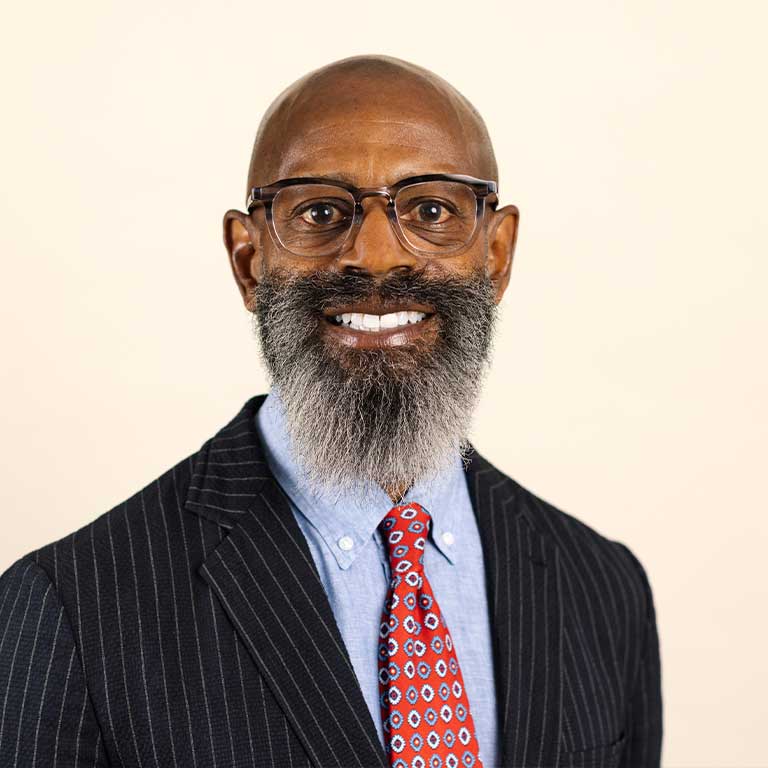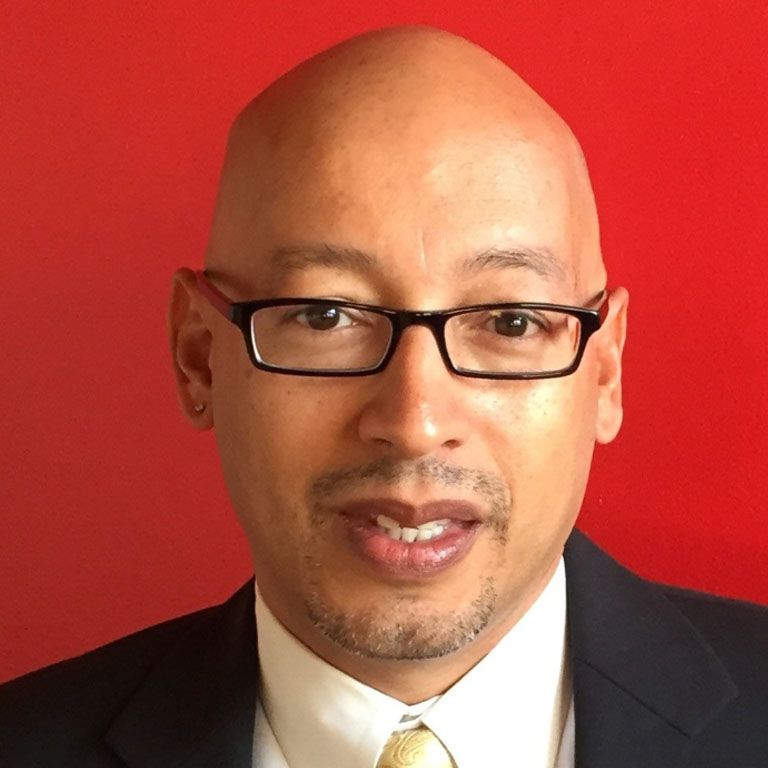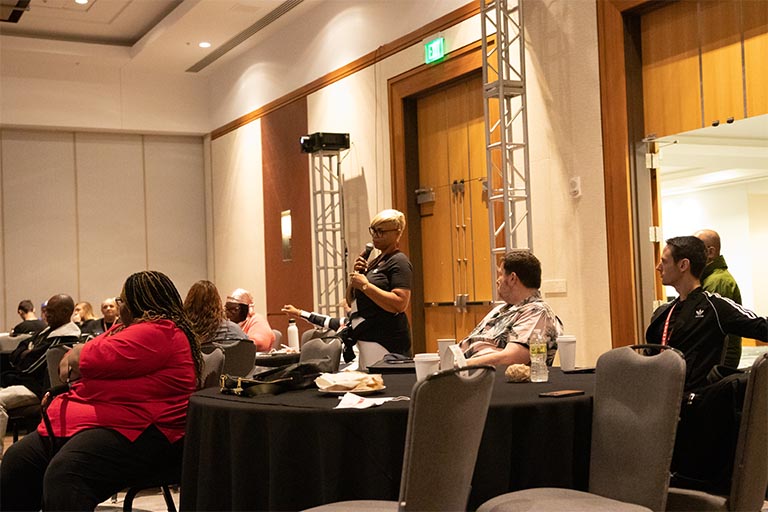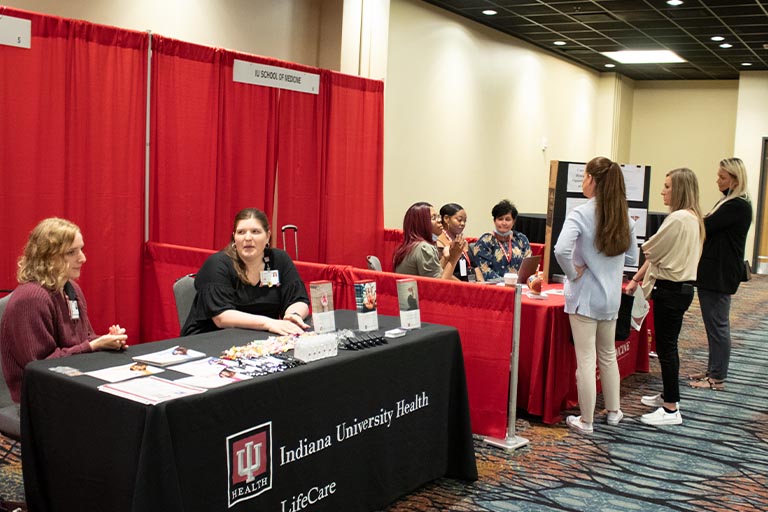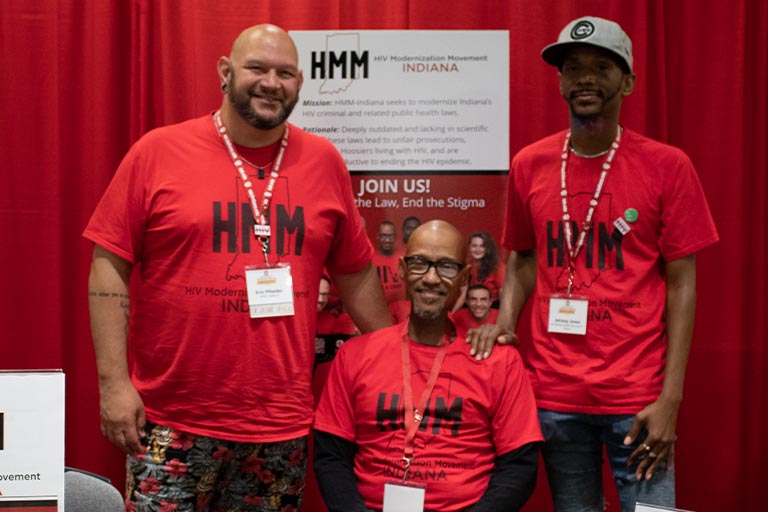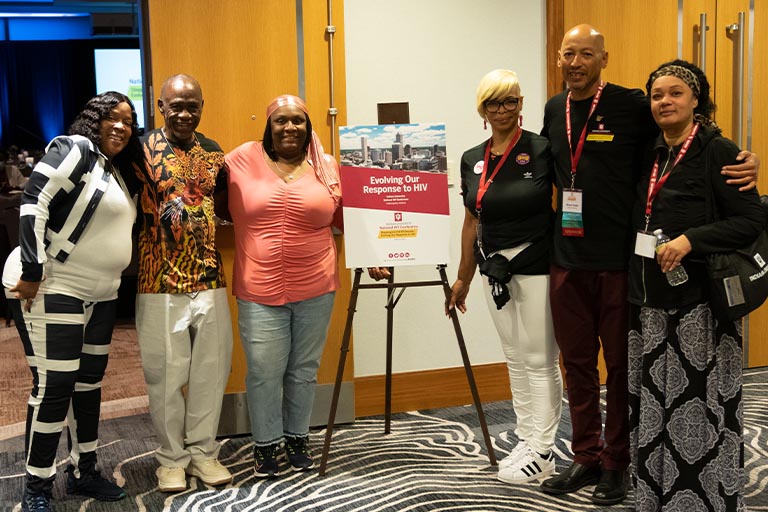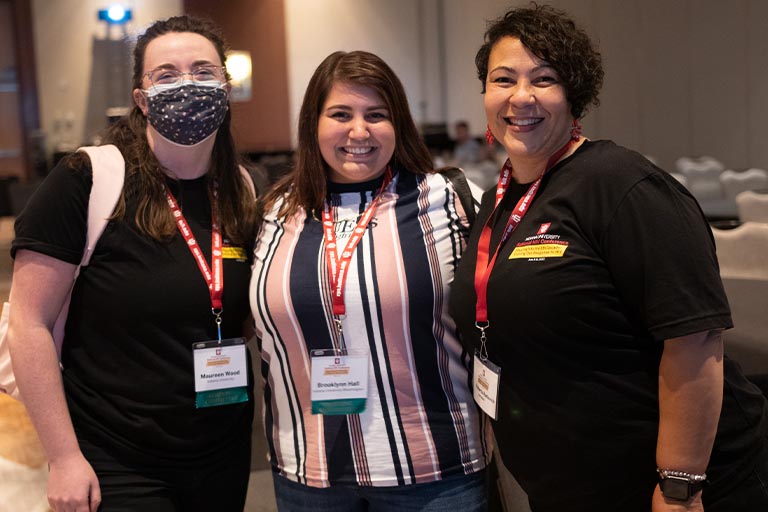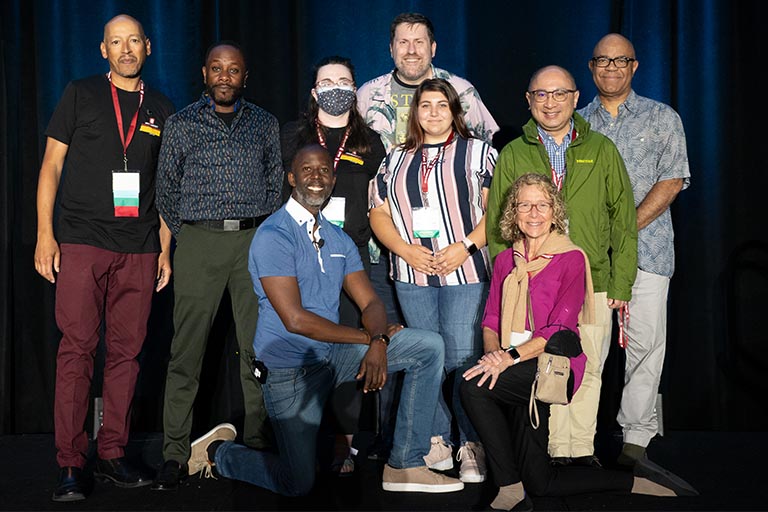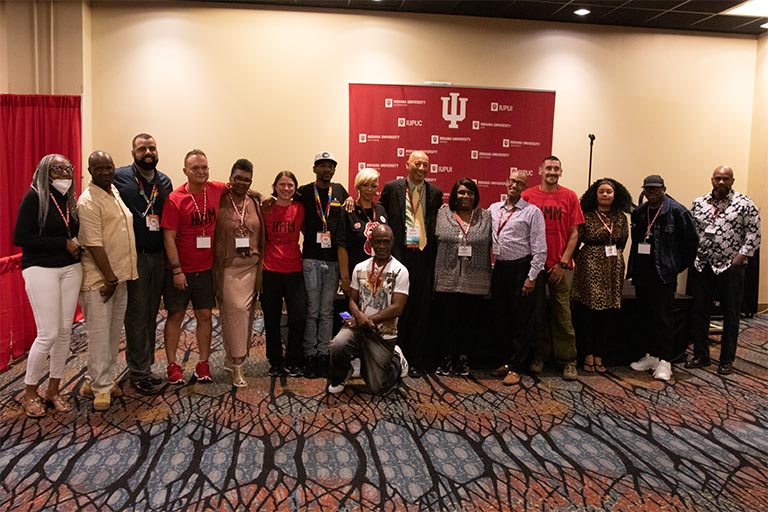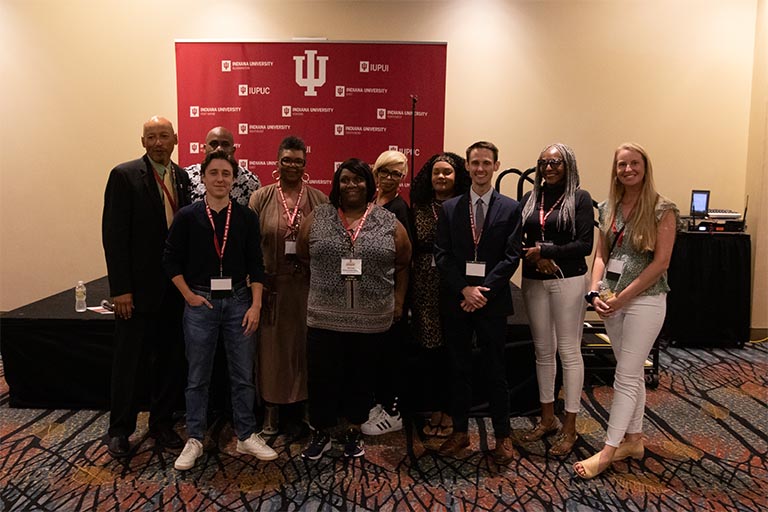Indiana University National HIV Conference
On June 8-11, 2022, Indiana University held the first national HIV conference at a major university titled "Stepping Into the 5th Decade—Evolving Our Response to HIV."
Hosted by Indiana University's Office of the Vice President for Diversity, Equity, and Inclusion (OVPDEI), the event brought together almost 400 conference participants; 41 workshop and poster session presenters; four keynote speakers; and three community dialogue sessions to share information and unite around the goal of ending the HIV epidemic by 2030. In addition to workshops and networking opportunities, the four-day conference provided dozens of free HIV testing and resources, empowering community members with knowledge and helping keep them and others safe.
The conference reached a global audience from national researchers, pharmaceutical representatives, and educators to college students. Registered conference participants were from the United States, South Africa, and the Virgin Islands, with representation from thirty of the fifty United States. In addition, the conference impacted the state, with one hundred forty participants joining from across Indiana.


